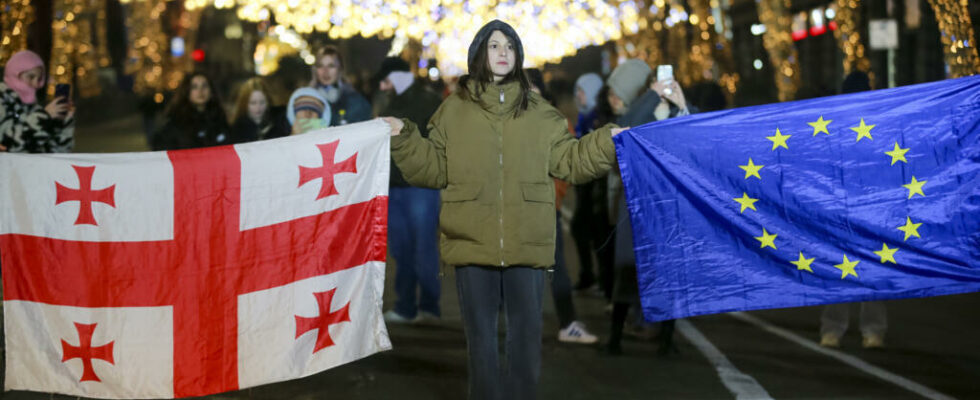Presidential transfer of power this December 29 in Georgia. The outgoing pro-European president Salomé Zourabichvili must give way to the pro-Russian far-right Mikhail Kavelashvili, candidate of the ruling party, nominated on December 14. The “Georgian Dream” party is strongly contested by part of the population who have been demonstrating daily for a month. Faced with this crisis, the European Union will have difficulty agreeing on whether or not to support the opposition, underlines Lukas Macek, researcher at the Jacques-Delors Institute. He answers questions from Victorien Thomas.
4 mins
RFI : What will be the position of the European Union (EU) towards the new president inaugurated this Sunday, December 29, Mikhail Kavelashvili ?
Lukas Macek : What we can observe is that theEuropean Union seems relatively divided between, on the one hand, the Baltic countries which advocate a firm position and which have taken a lead. They have adopted, for example, a number of sanctions stronger than those of the European Union. On the other hand, two countries are on the contrary on a completely opposite line: Hungary and Slovakia. What remains to be confirmed today is ultimately the position of the entire rest of the European Union, and in particular the large EU states. What will the common position be? Today, it is not very clear. There were discussions in the European Council about possible sanctions and Hungary and Slovakia vetoed them. We risk being faced with a situation where, unfortunately, the European Union will not be able to have a strong common position and therefore, it will rather be up to each of the States to position themselves. From this point of view, I think that the majority of them will tend towards a more or less strong position in support of the opposition in Georgia. Will the European Union put all its weight on the side of the opposition, as it was able to do at the time of the Maidan revolution in Ukraine ? Today, this remains a big question mark.
Do you think that the EU will still leave the door open for Georgia’s candidacy for the European Union, or will it remain on hold on the process after the legislative elections on October 26? ?
It’s quite a strange situation because the frost, in fact, also comes from the other side. It is also the Georgian government – and its pro-Russian Prime Minister – who have indicated that they wish to put their candidacy on hold. So this is a fairly unprecedented situation. I believe that the threat of a freeze in negotiations, on the side of the European Union, will not make this government back down, since the latter is clearly showing that this is what it itself wants. So, I think the question lies at another level: will the European Union recognize the results of the legislative elections and consider that the current Georgian authorities are legitimate? Or will it adopt a tough position which will consist, precisely, of not recognizing the legitimacy of the current government and of demanding that there be new elections? It may also require a negotiation process between theopposition and power in Georgia.
If Europe takes this hard stance of supporting the opposition without recognizing the election result, will it really have any influence on Georgian politics? ?
For me, you have to see things differently. This period of political unrest in Georgia is not a standoff between the European Union and Georgia. It is a standoff within Georgia between the opposition and the power. It remains to be seen whether EU policy can have any influence in this balance of power. To what extent can European support, a European position, give strength, give confidence, give a form of positive horizon to the Georgian opposition which is pro-European? However, even if this power game is internal to Georgia, the more the European Union is conciliatory with the “Georgian Dream” party, the more it risks demoralizing the opposition, and vice versa.
Also listenGeorgia, the end of the European dream?
